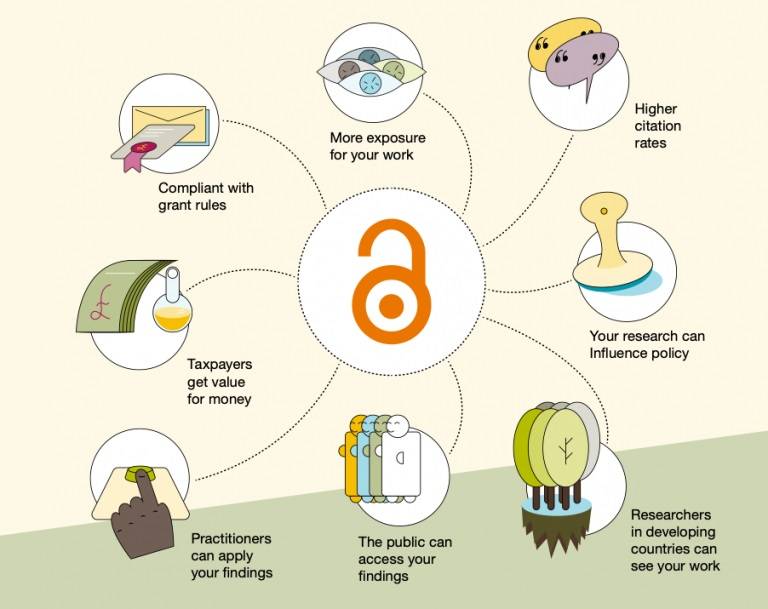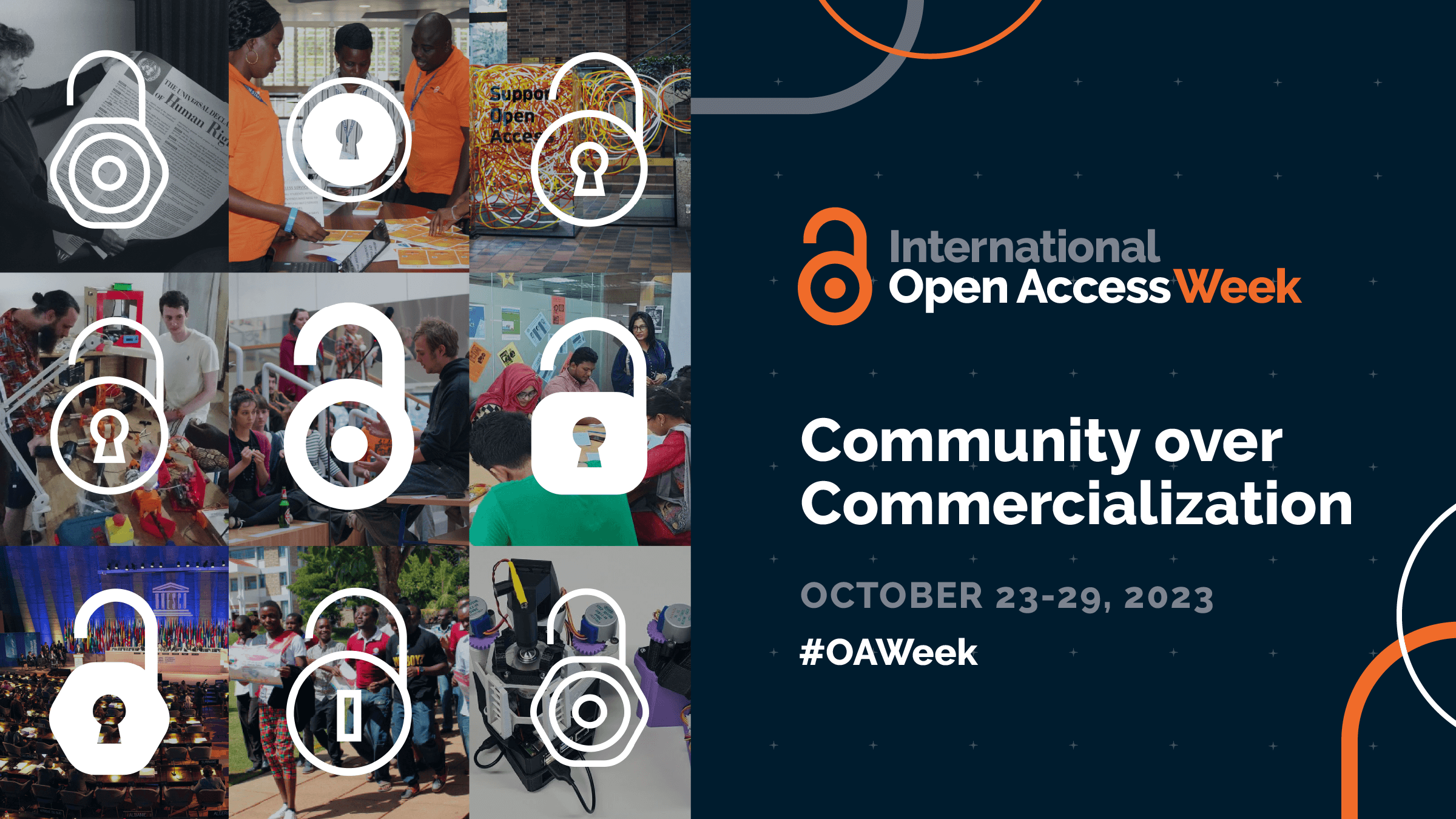Happy Open Access Week! International Open Access Week (October 23-29, 2023) was created by the Scholarly Publishing and Academic Resources Coalition (SPARC) to highlight the benefits of Open Access (OA), share information on OA, and inspire wider participation in OA by the academic and research community. This year’s theme for Open Access Week is Community Over Commercialization. This theme focuses on “which approaches to open scholarship prioritize the best interests of the public and the academic community.”

What is Open Access?
Most simply, OA is “the free, immediate, online availability of research articles coupled with the rights to use these articles fully in the digital environment” (SPARC). This type of access to research provides the public with many benefits. Research allows for the progression of society as it works to provide solutions for issues we face. This means that communicating the results of such research is incredibly important as it allows for others to contribute to and advance research in order to better society. For many years, published research has been held behind technical, legal, and financial barriers that are mostly set by publishers. These barriers only allow for a limited group of people to access this information which then limits who can work to build upon it. Research that is published OA opens doors for a broader audience of readers and gives more people the opportunity to utilize and contribute to the scholarly field. As SPARC explains, “The more people that can access and build upon the latest research, the more valuable that research becomes and the more likely we are to benefit as a society.” OA therefore is an invaluable asset to the world of research and potentially society as a whole.
OA vs OER
OA can easily be confused with Open Educational Resources (OER) as they are rather similar but it is important to distinguish between the two. OER are free or openly accessible materials that are useful for teaching or learning. OA and OER both have the key component that they are freely accessible but the formats they come in and permissions that come with them differ. OER can come in digital, print, and analog formats and includes materials such as videos, software, textbooks and teaching guides. OA resources on the other hand are only available digitally unless they have been printed out and include materials like scholarly books and journal articles. Both OA resources and OER have the permissions to be read, reused, retained, and redistributed but with OER one can also revise and remix the resource to best fit their needs. To learn more about OER, visit the library’s Open Educational Resources Guide.
Community Over Commercialization
This year’s theme of Community Over Commercialization works to open up conversations on what methods of Open Access currently best support the public interest and which do not. The call to support community over commercialization was brought to light by the United Nations Educational, Scientific and Cultural Organization (UNESCO) in their Recommendation on Open Science. UNESCO explains that Open Science, which includes Open Access, is a “set of principles and practices that aim to make scientific research from all fields accessible to everyone for the benefits of scientists and society as a whole” and their recommendation provides a framework for open science policy and practice. The UNESCO Recommendation on Open Science focuses on community by calling for the prevention of “inequitable extraction of profit from publicly funded scientific activities.” It also encourages the use of non-commercial and collaborative publishing models which work to take the focus of research off of commercialization. In highlighting these ideas, the focus of OA is brought back to its true aim of creating public good.

Learn More About OA
OA is continuing to gain support and its use is becoming more prevalent. As people move toward OA for sharing research, it is important to be aware of the many methods of OA publishing and what methods of OA are best for supporting public interest. Explore the resources below to learn more!
SPARC : This resource gives an overview of the specifics of OA and provides stories of how OA has impacted different areas of society.
Open Access at Catholic University : Learn more about OA and Scholarly Communications at CU.
Cornell University Open Access Publishing : Learn more about the different types of OA publishing and the many effects they can have.
